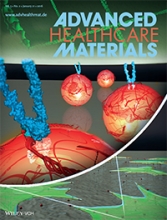Researchers have discovered that they can control the stickiness of adhesive bandages using ultrasound waves and bubbles. This breakthrough could lead to new advances in medical adhesives, especially in cases where adhesives are difficult to apply such as on wet skin.


Scientists from McGill University develop stronger and tougher glass, inspired by the inner layer of mollusk shells. Instead of shattering upon impact, the new material has the resiliency of plastic and could be used to improve cell phone screens in the future, among other applications.
Researchers at two Quebec universities are working together in hopes of developing a new vaccine that could prevent COVID-19 and similar outbreaks. Amine Kamen, a biomedical engineer at McGill University will be working with Denis Leclerc, a researcher from Laval University. Kamen's primary role in the research will be to generate antigens — toxins that urge the body to create antibodies in order to fight off disease.

Research led by Dr Hossein Heris of the Department of Mechanical Engineering and Dr Jamal Daoud of the Department of Biomedical Engineering is featured on the cover of the journal Advanced Healthcare Materials. Their article describes the successful adhesion of human fibroblast cells to a scaffold biomaterial composed of hyaluronic acid and gelatin composite microgels.
